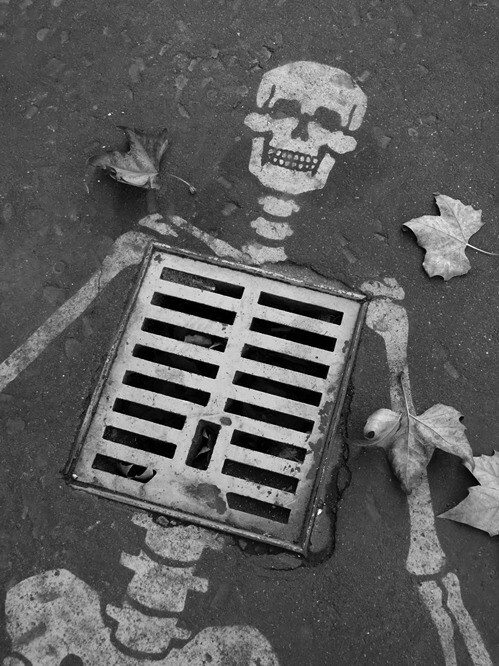Here in WA state, the minimum wage per hour is $15.74 (higher in some areas). Tipping culture says 20%, but that’s generally to support lower paid waitstaff in areas that can pay less than minimum wage by employers. Where/What are you tipping and what kind of service would you expect for a 20% tip?

I’m so tired of being asked for tips at nearly every store. Even some self-service checkouts are now asking for tips. Like, for what? I scanned my items, I bagged my items, I had zero human interaction with your staff - what am I tipping for? And in other stores, there’s aways someone hovering over the register, watching you when the tip prompt is given, so you feel pressured to tip something. It’s absolute hell. I’m fine with tipping the bartender, barista, wait staff, hairdresser, and delivery driver. Everyone else? Yeah, no.

For greater corporate profits, of course. Won’t anybody think of the corporations?

The proliferation of this stuff has started to make me far less receptive to being asked to tip. I’ve basically started to make a mental rule to hit “no tip” on every square terminal I encounter to guard myself from the guilt and pressure when it’s a really absurd tipping situation like a self checkout, or picking something up or whatever. I really don’t want to be an asshole, and I do try my best to tip in the appropriate situations… But I actually hate it so much that I avoid patronizing services where tips are expected. I just find navigating this to be more mental effort than I can spare most of the time and I hate second guessing myself about how much to tip or if to tip at all, and I just always feel taken advantage of or like I didn’t do enough… I usually just suck it up and tip when in doubt, but I really don’t like how it makes me feel. I just want everybody to be able to make a good living and to not have to think about any of this and have the price just be the price (with taxes included too, by god).
I don’t tip. If they exploit their workers in any way, then I just don’t support that business. I vote for better labour laws instead.

Unfortunately, until laws like that pass, it doesn’t put money in my bank account. I opt to do both until then. No need to punish workers for something they can’t always help.
It’s really not helpful to accuse non-tippers of punishing staff. When that happens, the real exploiter gets away.

Shall I get you a stool so you can get off your horse?
That is exactly what you are doing, punishing staff. They may not have the choice to have their job and all you do by not tipping them is punish them for your high ideals. Don’t like tipping? Sure, that’s fine. Want to vote for laws that get rid of it? Hell yeah the more people voting the better. But not tipping just so you can justify your your ideals and only hurt the real victim here? Asshole. Want to really hurt the real perpetrator? Don’t fucking go to a place that has tipping in the first place.
chill out a bit, man
In Seattle, the minimum wage will be $19.97/hr with no difference for tipped staff. What would you tip in that situation?

McDonald’s has been paying $22 an hour for years on the Eastside. Workers actually get pretty good pay around Seattle. It still doesn’t go very far though, because housing is fucking ridiculous.
I don’t know about the U.S. If the pay or work conditions seem exploitative (incl. taking cost of living into account), then I don’t support that exploitation by going there.
Tipping is bizarre to me and and still not divorced from its ugly origins in Europe and U.S. Not many industries can say “hey, we treat our staff terribly, but you can make up for it if it bothers you that much” and maintain clientele. But for the hospitality industry, they haven’t moved on from exploitation and we’re complicit by entertaining them.
https://www.povertylaw.org/article/the-racist-history-behind-americas-tipping-culture/

When COVID started, I started tipping everywhere including fast food restaurants, coffee shops, take out counters, etc. At the time I considered it to be a sort of “hazard pay” almost, since I felt bad for the workers having to be on the front line against their will.
These days with most people (including the employees) disregarding COVID as a whole, I no longer feel the need to tip everywhere, but I find it very hard to know where to tip.
I used to (before COVID) use the rule of thumb that if there was a cash tip jar, then the tip was not expected; but with the POS machines always asking for tips I honestly get pretty confused about what’s expected of me.
Even when I’m confident a tip is not necessary (a merch booth, for example), I feel incredibly guilty searching the POS screen for the “no tip” button.
In most grey area situations I usually just take the L and add a tip because I’m fairly certain I’m getting paid more than whichever worker would be receiving the tip and it’s a nice easy minor method of wealth distribution. I usually just consider it part of the cost of the good/ service.
In terms of the main portion of the question (percentages tipped): if it’s something I think I would have tipped on pre-COVID my starting point is 20%, if it’s a grey area situation where I’m pretty sure I’m not actually “supposed” to tip my starting point is usually 15%.

This is what I do, with one more category - I tip 22 or more to small, local businesses I use. Box stores or large franchises, not so much.
During covid, when I did order takeout we kept it to our favorite two places, hoping they’d survive, which they did. When we went back to in person it turns out I was known - it was a funny way to become a regular. So I feel like it must have made a difference.
Anyway. The landscape is increasingly complicated and I think we’ve got to choose the one or two things that are important.
I can get behind the idea of wealth redistribution. I’m making decent money (enough to eat out in Seattle) so I usually tip 15% normally and 20% if I’ve been a nuisance with special requests, etc.
The idea of knowing who my money goes to is important. If I can interact with waitstaff and tip them for helping me through the dinner transaction, I feel like it’s a bargain. On the other hand the tip jars seem like a donation to management and not the workers. On the POS screen, it’s always ‘no tip’ for me with cash on the table.

I always tip 20% tip wait staff regardless of service unless it was incredibly poor, but I simply haven’t had terrible service in around a decade.
Businesses should pay their fucking workers, but until then, I feel it’s only right to help them make sure they have a decent wage.
Reducing for terrible service I understand, but what about non-existent service? Someone only came by to refill a drink after I flagged them down and I had to chase down my check from some other person. Is that terrible service? Those aren’t kitchen mistakes and I’m not some feudal lord that demands my servants’ full attention - but that’s literally their job. Would you tip 10% in that situation?

Naw, I’d probably still tip 20%. People who are shit at their jobs still gotta pay rent, utilities, buy food and some recreation and all that. You’d have to be downright rude to me to lose a tip.

While true, that’s not on you. That’s on the business

I don’t tip because I live in a country that doesn’t tip and I’m very against it ever taking root here.
Those things about controlling the service, and choosing who “deserves” what, are anathema to me.
The person is doing a job however they and their employer see fit. If they want to run a business like Basil Fawlty that’s on them.
My input into what they get paid is to vote for strong labour laws, min wage rises, and workers’ rights. If a tipping culture emerged it would most likely weaken those things and make wages more capricious and less fair. We must resist it.

Here in Maine, the minimum tipped wage is $6.90 while the standard minimum wage is $13.80. We eat out so rarely, and generally only as part of a celebration, so we tend to tip %30 or sometimes higher just to make another person’s day better too. It helps that we’ll hit a family owned hole in the wall where the really great food is, rather than an overpriced chain. It’d be great if it was higher, but given how dependent our state is on seasonal tourism it’s a tough ask/sell for year round establishments.

Just because minimum wage is high, doesn’t mean it is a living wage. Here is a great breakdown of costs in Washington
https://nlihc.org/oor/state/wa
With wild inflation and general CoL increases, long gone are the days of the $15/hr being livable. As far as tipping culture goes, it is fucking bullshit. Just pay your staff and increase menu prices as needed. That being said, changing the culture around tipping will take a sea change by either making minimum wage a living wage based on inflation or UBI. Or both. Not tipping because it is bullshit only hurts the people who have the most to lose.

I tip for 2 things: restaurants and food delivery.
For food delivery, I tip $24.
For restaurants, I tip around the same unless it is a particularly fancy place with a tasting menu that means they’re servicing the table way more often than a normal restaurant.

I live in the UK so tipping thankfully isn’t a thing here as we have minimum wage. I will tip if I’m at a restaurant with a group of people but otherwise I won’t tip at all. Hospitality workers deserve to be paid more but it’s not up to the customers to supplement a dodgy business. I am in a union and will always vote for parties who advocate for employment rights though.
Tipping is very much a cultural thing and I think it’s not wise to treat it like it’s the same everywhere. In the US it sounds like it’s a necessary evil and if I were to visit I would comply, but it’s not the same as in other countries.

It’s nice that Washington State and Seattle have laws and ordinances that protect basic rights of workers, but in most places that does not exist in the US. In many places it’s $2.13 an hour which is supposed to be made up by tips to be at least $7.25 an hour.
In theory this is to be made up by the employer if tips dont reach $7.25 but in many right to work states making a fuss about that could land you unemployed. And even if that isn’t an actual possibility, the fear of it keeps most quiet.
That’s ignoring the outright insanity of saying $7.25 is remotely enough to get by anywhere in the US without forgoing food, safety, health, or the many things required to hold down a job (address, transportation, internet, phone).
I tip when I go out because I can and I don’t know the employees situation. If I feel like I can’t, I don’t go out, get my hair cut, or get a taxi. I wish we didn’t have this backwards racist system but I mean (look at us).
Obviously the iPad asks you to tip at silly times, like at the merch booth at a concert, this is a minor inconvenience, just hit no thanks and be ok
Edit: my succinct answer is, I tip when I feel like I am financially able and it’s one of those situations I have always tipped in

True, but it’s the employer’s responsibility to compensate their staff, not the customer’s. If everyone is getting tips, then they’re worthless since they’ll have to pay 20% more for everything when they spend those tips. Tipping lets employers pretend a job is well compensated when really they’re paying the absolute minimum. It needs to change. Customers shouldn’t be guilted into worrying about the livelihood of the cashier when they just want a bottle of water from the gas station.



